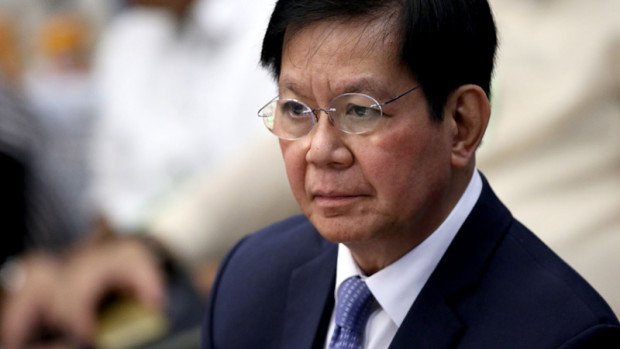MANILA, Philippines — The government can produce a report on President Rodrigo Duterte’s war on drugs and give a copy to the United Nations Human Rights Council (UNHRC), but not allow a UN investigation of the thousands of killings in the crackdown on narcotics, Sen. Panfilo Lacson said on Sunday.
“We can produce a comprehensive report on what the lowdown really is, what is happening in our drug war and we can give them a copy,” he said in a radio interview.
“But for us to allow them to investigate here, that is a slap to us. We are looked down like children who do not know what we are doing,” Lacson, a former chief of the Philippine National Police, said.
Iceland resolution
Lacson’s suggestion came amid condemnation by the government of the UNHRC’s adoption on Thursday of a resolution submitted by Iceland for a UN investigation of the thousands of killings in the war on drugs.
The proposal passed narrowly, with 18 countries voting to approve, 14—including the Philippines and China—rejecting it, and 15 abstaining.
With the resolution adopted, the UNHRC gave instructions to the UN High Commissioner for Human Rights to submit a “comprehensive” international report on Mr. Duterte’s signature program and called on the Philippine government to cooperate with the world human rights agency, including “facilitating country visits and preventing and refraining from all acts of intimidation or retaliation” on human rights defenders.
President Duterte has threatened to arrest UN special rapporteurs who would come to the Philippines to investigate the killings.
His allies have brought drug charges against and clamped in jail Sen. Leila de Lima for investigating the killings, which the Philippine National Police says number 6,600 as of May but rights groups estimate may be more than 27,000.
The PNP recognizes only the 6,600 killings by officers and attributes other deaths to drug gangs eliminating each other.
Those killings have been carried out by motorcycle-riding gunmen who, according to rights groups, are hired guns paid by the police or policemen themselves.
Lacson said any agency under the executive branch could prepare a report, as long as the report was based on facts and figures.
“You can easily see if it was doctored, anyway. Say, if we allow the Commission on Human Rights to do it, it will still be the same. The CHR has no status to send a report on behalf of the Philippine government,” he said.
Not just figures
He said the report should also include the actions taken and not just numbers, or figures, “but the remedial or corrective measures that authorities are doing.”
Last week, Lacson said the Philippines did not need UNHRC interference in an investigation of the war on drugs, or to deal with abuses, because the country had a working judicial system.
On Sunday, Lacson said there was not much pressure for the Philippine government to heed the UNHRC resolution, as it failed to gain the approval of the majority of the council’s members.
But he stressed that the government should not ignore the resolution altogether.
“We should not ignore it because that is still a democratic vote. Even if it was just 18 out of 47, that is still a democratic vote. At the end of the day, that’s still democracy,” Lacson said.
The UNHRC, however, should make clear the purpose of the resolution, he said.
“Because it seems that if they are satisfied with the findings, they will launch another investigation, which I believe is inappropriate,” Lacson said, adding that the country’s national dignity is “far more important than anything else.”
Malacañang on Friday slammed the Iceland resolution as “based on false information” and “bogus news.”
Presidential spokesperson Salvador Panelo said the resolution relied on information from critics of President Duterte and biased news reports.
Foreign Secretary Teodoro Locsin Jr. on Sunday threatened a Philippine withdrawal from the UNHRC, like the pullout of the United States from the council a year ago.
“Iceland took the place of the US after it withdrew from the Human Rights Council. I think we need to follow America more,” Locsin tweeted.
Last week, Locsin said an investigation resulting from the narrow vote for the Iceland resolution would not be allowed in the Philippines.
On Sunday, he said the countries that voted for the resolution had accepted facts that “they assumed in condemning us to a probe.”
“Want the cops to probe you in search of proof of probable cause that you might have committed a crime? I don’t think so. Exactly, they speak in totally willful and complete ignorance,” he tweeted.
Double standard
In his radio interview, Lacson also cautioned the government against applying a double standard in asserting Philippine sovereignty, following observations that the government was keenly assertive of sovereignty in rejecting the UNHRC resolution but was mild in its response to China’s increasing encroachment on Philippine waters, which led to the sinking of a Philippine fishing boat after being hit by a Chinese trawler at Recto Bank in the South China Sea on June 9.
“That’s really the hard part. If we have a double standard in treating these, [our] credibility will be eroded. The government should only invoke one standard,” Lacson said. —Reports from Julie M. Aurelio and Dona Z. Pazzibugan
